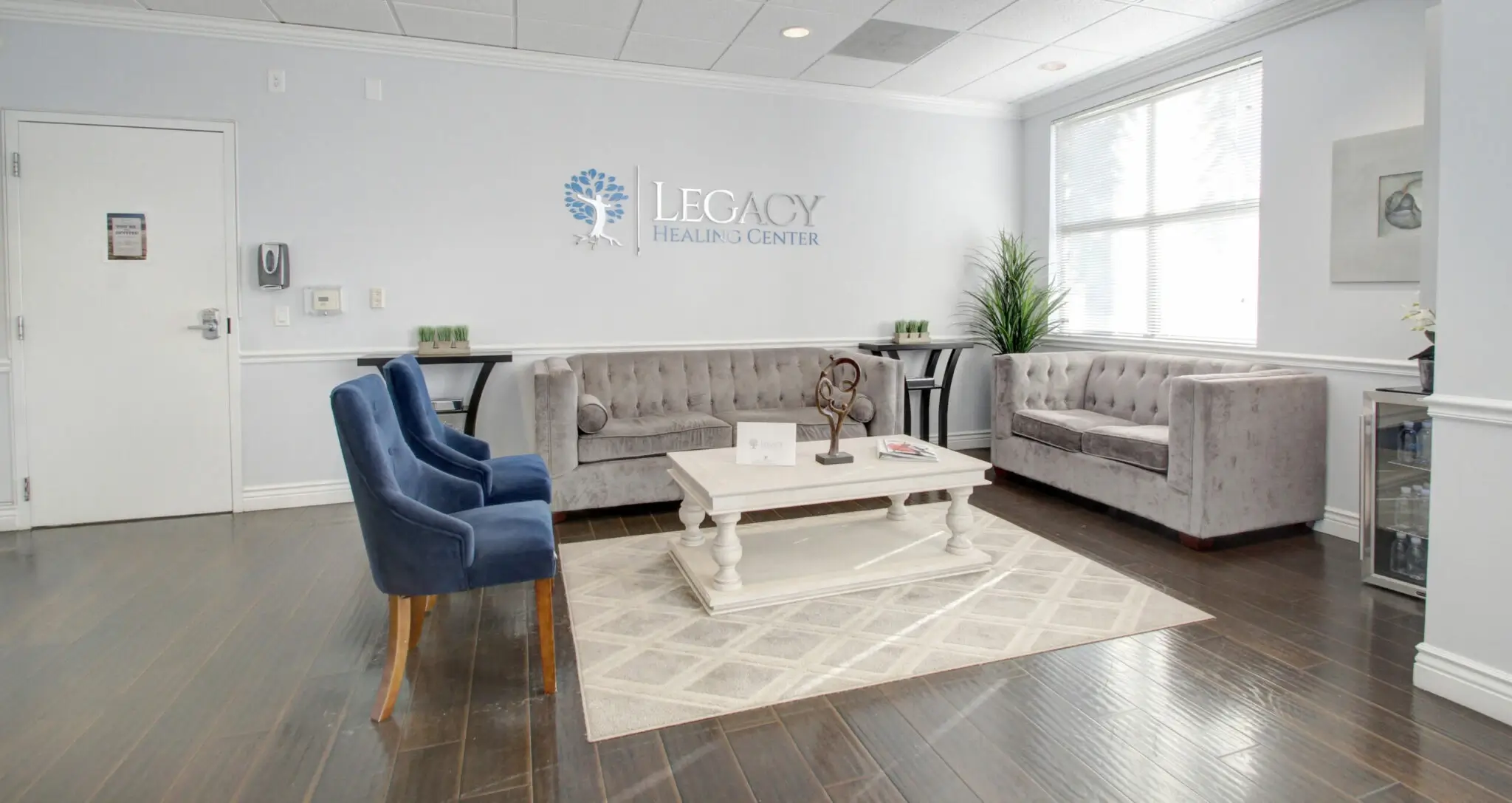
Outpatient Drug Rehab vs Inpatient: A Guide For Choosing The Right Treatment
Introduction to Addiction Treatment
Choosing the right rehab facility is a life-changing decision—and one that depends heavily on your individual needs, responsibilities, and the severity of your substance use disorder. Two of the most common options are inpatient rehab and outpatient drug rehab, each offering a unique approach to recovery.
Inpatient treatment provides a highly structured, immersive environment that requires patients to live at a rehab center full-time. It’s often recommended for people with severe addiction, frequent relapse history, or co-occurring conditions who need 24/7 care and supervision.
Outpatient treatment centers allow individuals to live at home and attend therapy and medical appointments on a set schedule. This flexible model is ideal for those with supportive home environments, work or family commitments, or mild to moderate addiction.
In this guide, we’ll help you understand the key differences between inpatient and outpatient rehab, explore the benefits and challenges of each, and give you the tools to make a confident, informed decision. Whether you’re starting treatment for the first time or transitioning from a higher level of care, knowing your options is the first step toward lasting recovery.
Understanding Inpatient Drug Addiction Treatment

Inpatient treatment programs are the most intensive level of care for treating addiction, offering a fully immersive environment designed to promote healing, stability, and long-term recovery. In this model, individuals reside at a licensed treatment facility for a designated period, typically 28 to 90 days, depending on the severity of the substance use disorder and personal treatment goals.
Inpatient programs provide round-the-clock medical supervision, along with structured daily schedules that include individual therapy, group counseling, and holistic wellness activities. This constant support makes inpatient care especially effective for individuals with moderate addiction, a history of relapse, or dual diagnosis.
Key Features of Inpatient Treatment:
- 24/7 access to medical professionals and clinical staff
- Evidence-based therapies, including Cognitive Behavioral Therapy (CBT) and group counseling
- On-site amenities such as fitness centers, nutritious chef-prepared meals, and recreational therapy
- A highly structured environment that minimizes distractions and triggers
What Does Inpatient Drug or Alcohol Rehab Cost?
The cost of inpatient rehab can vary significantly based on the length of stay, amenities, and level of care provided. Basic costs of inpatient treatment are around $2,000 to $7,000 per month, while private luxury rehab centers with private rooms and premium services can range from $20,000 to $40,000+ per month.
While these figures may seem overwhelming, most facilities work with private health insurance, and many plans cover a substantial portion of inpatient treatment costs. For those paying out-of-pocket, outpatient programs may present a more affordable alternative, while still delivering strong outcomes for the right candidate.
Inpatient programs offer more than just treatment; they provide a safe, supportive space to break free from substance use and lay the foundation for lasting recovery.
Inpatient vs. Outpatient Rehab: Key Differences
When exploring options for treatment, understanding the differences between inpatient and outpatient facilities is essential. Both approaches offer effective pathways to recovery but vary greatly in terms of intensity, structure, and lifestyle integration.
Inpatient Treatment:
Inpatient rehab provides 24/7 medical care and a highly structured environment where individuals live on-site for the duration of treatment. It is best suited for those with:
- Severe or long-standing addiction
- A history of relapse
- Co-occurring disorders
- Psychiatric Services
- Limited support at home
This level of care offers therapeutic immersion, reducing distractions and exposure to external triggers while providing access to a full clinical team at all hours. Inpatient treatment is always recommended for those suffering from long-standing addiction.
Outpatient Treatment:
Outpatient rehab programs offer more flexibility, allowing individuals to live at home while attending scheduled treatment. It’s ideal for those who:
- Have mild to moderate addictions
- Need to maintain work, school, or family responsibilities
- Have a strong support system at home
- Are stepping down from inpatient care
Outpatient treatment typically includes group and individual counseling, and relapse prevention strategies, scheduled around daily life.
Which One Is Right for You?
There’s no one-size-fits-all approach to addiction treatment. Inpatient care provides intensive support for those needing medical stabilization or deep behavioral change, while outpatient care offers autonomy and affordability for those in less critical stages of recovery.
Many individuals benefit from several levels of care, starting with inpatient treatment and transitioning into outpatient services for continued support. This hybrid model promotes sustained progress and reinforces long-term recovery.
💡 Pro Tip: A professional assessment can help determine which level of care best meets your clinical and personal needs. Call 888-534-2295 to speak with an addiction specialist to help guide you through a personal treatment plan.
Benefits of Outpatient Treatment

Outpatient rehab works by offering a balanced approach to recovery, providing effective clinical care while allowing individuals to maintain their responsibilities and routines while receiving treatment. This level of care is ideal for those with mild to moderate drug abuse who are ready to heal while staying connected to their everyday lives.
Flexibility and Accessibility
One of the most significant advantages of outpatient treatment is the ability to schedule therapy sessions around work, school, or family obligations. Whether you need evening appointments or weekend options, outpatient rehab can be tailored to meet your lifestyle needs, making it easier to stay committed to treatment without stepping away from your daily life.
Cost-Effective Care
Outpatient rehab is often more affordable than inpatient programs, as it does not include room and board or around-the-clock medical care. For those paying out-of-pocket or working with limited insurance coverage, outpatient care provides high-value services at a lower cost, without compromising therapeutic support.
Clinical Support in a Real-World Setting
Outpatient treatment offers access to:
- Individual counseling for personalized progress
- Groups for peer connection and shared learning
- Relapse prevention strategies and education
- Support for co-occurring disorders
These services are delivered in a way that encourages the application of recovery skills in real time, helping clients navigate challenges at home, work, or in social situations.
Ongoing Support Without Isolation
Unlike an inpatient setting, outpatient care allows individuals to maintain relationships with loved ones and build a sober support network in their own community. This promotes long-term success by reinforcing accountability and connection outside of treatment hours.
“Outpatient rehab helps you recover without stepping away from your life—it helps you reclaim it.”
Clinical Effectiveness of Treatment
The success of an addiction program is influenced by many factors, including the type of program chosen, the individual’s personal history, and the presence of co-occurring conditions. Choosing the right level of care is critical to ensuring a strong foundation for long-term recovery.
Matching Treatment Intensity to Clinical Needs
For individuals with mild to moderate substance use disorders, outpatient rehabs – including standard outpatient and intensive outpatient programs (IOPs) – can be highly effective. These treatment programs offer structured therapy while allowing for greater flexibility in daily life.
In contrast, individuals with long-standing addictions, repeated relapse, or complex psychological challenges may require inpatient treatment, where 24/7 supervision and an immersive therapeutic environment provide a higher level of clinical and emotional support.
What Makes Treatment Effective?
Clinical effectiveness is not about a one-size-fits-all approach—it’s about tailoring care to the individual. Key components of successful treatment include:
- Access to licensed therapists and addiction medicine specialists
- Regular individual therapy and group counseling
- Integration of psychiatric care, especially for dual diagnosis cases
- Consistent clinical monitoring and progress tracking
- Inclusion of relapse prevention and aftercare planning
The Role of Intensive Outpatient Programs (IOPs)
Intensive outpatient programs are a step between traditional inpatient and outpatient care. IOPs offer more frequent sessions, often 3 to 5 days per week, with multiple sessions of therapy each day. They include a mix of individual counseling, group therapy, and sometimes family sessions. While costs can vary, some IOPs range up to $5,000 per week, depending on program intensity, services offered, and location.
Despite their cost, IOPs are often covered by insurance and deliver high clinical value, especially for individuals who need structured care but cannot commit to full residential treatment.
Ongoing Support Drives Long-Term Success
Regardless of the treatment setting, one of the most important factors in achieving sustained recovery is continuity of care. Ongoing support—through therapy, medication management, support groups, and accountability—ensures that the gains made during treatment translate into real-world, lasting change.
- Recovery isn’t about choosing the “best” program—it’s about choosing the right one for your needs, your history, and your goals.
Addressing Mental Health Conditions
Substance use and psychological health are deeply interconnected. Many individuals entering a rehab facility also experience underlying or co-occurring conditions, such as depression, anxiety, PTSD, or bipolar disorder. Addressing both aspects simultaneously is critical to achieving lasting recovery.
Integrated Treatment for Dual Diagnosis
Outpatient programs must be equipped to deliver comprehensive, dual-diagnosis care, especially for those managing both a substance use disorder and a mental health condition. Without addressing the emotional and psychological components of addiction, the risk of relapse significantly increases.
Effective outpatient rehab includes:
- Individual counseling sessions to explore the root causes of substance use
- Group therapy for shared connection and social support
- Trauma-informed care and psychiatric support when needed
Access to Address Mental Health Issues
Ensuring access to quality mental health is a public health priority. The Mental Health Services Administration and local health department offices have played a key role in establishing guidelines and expanding access through Medicaid, Medicare, and other government-funded insurance programs.
By law, these programs must cover substance abuse treatment and mental health clinics to the same degree as medical care, ensuring that individuals receive the help they need, regardless of financial barriers.
Legacy Healing Center is a private luxury rehab that does not accept Medicaid or Medicare. If you are seeking treatment and have Medicaid or Medicare, please visit SAMHSA or FindTreatment.gov to find local resources to start your recovery journey.
The Role of Therapists and Counselors
Licensed therapists and counselors are essential members of every treatment team. Clinical management provide necessary assessments, develop personalized treatment plans, and guide individuals through the emotional landscape of recovery. Their expertise helps clients build coping strategies, improve emotional regulation, bridge family and social relationships through therapy sessions, and heal from past trauma.
Ongoing Support Beyond Treatment
Your emotional and mental well-being care doesn’t stop when formal treatment ends. Continuing care plans often include:
- Weekly support groups like Alcoholics Anonymous (AA) or Narcotics Anonymous (NA)
- Continuous individual or group counseling
- Access to telehealth or community-based services
- Family member involvement and education
- Ongoing support resources
True recovery treats the whole person—mind, body, and spirit. Addressing emotional health is not optional. It’s essential.
Inpatient and Outpatient Treatment: Choosing the Right Level of Care
Inpatient and outpatient treatment programs represent two core approaches to drug and alcohol rehab, each offering unique benefits based on a person’s clinical needs, lifestyle, and support system.
Inpatient Treatment
Inpatient rehab provides intensive, 24-hour supervision in a structured, immersive environment. This approach is most appropriate for individuals with:
- Severe addictions
- A history of relapse
- Co-occurring disorders
- Unstable or unsupportive home environments
With medical oversight, daily therapy, and a distraction-free setting, inpatient care creates a strong foundation for early recovery.
Outpatient Treatment
Outpatient settings involve flexible scheduling, allowing individuals to receive high-quality clinical support while continuing to live at home. Outpatient treatment is well-suited for those with:
- Mild to moderate addiction
- A stable and supportive home life
- Work, school, or caregiving responsibilities
Outpatient rehab typically includes group therapy, individual counseling, and relapse prevention education. Programs can range from a few hours a week to more intensive schedules like intensive outpatient programs (IOPs). On average, outpatient rehab lasts from 90 days to 1 year, though this varies based on individual progress.
Blending Levels of Care for Best Outcomes
For many people, the most effective strategy is a stepped-care model—beginning with inpatient treatment and transitioning into outpatient care as stability increases. This continuum supports sustained recovery by gradually building independence while maintaining medical support.
💡 The right course of treatment isn’t just about where you start—it’s about creating a path that evolves with your progress.
What Is Drug Rehab? Understanding Your Options
Drug rehab is a structured, evidence-based process designed to help individuals break free from addiction and build a healthy, sober life. It combines clinical treatment, behavioral therapy, and supportive care to address both the physical and psychological aspects of addiction.
Inpatient Drug Rehab
For those with long-standing addictions, a history of relapse, or co-occurring conditions, inpatient rehab offers the most comprehensive level of care. Patients live full-time at a treatment facility where they receive:
- 24/7 medical supervision
- Structured daily routines
- Intensive individual and group therapy
- Medication-assisted treatment, if clinically appropriate
- A supportive, therapeutic community
This environment provides the structure and stability needed to focus fully on recovery, away from outside triggers and everyday stressors.
Outpatient Drug Rehab
Outpatient programs are ideal for individuals with mild to moderate substance use disorders or those transitioning from an inpatient program. Outpatient detox is also available for individuals with mild to moderate withdrawal symptoms, providing medical support while allowing them to maintain their daily responsibilities. Outpatient rehab allows clients to:
- Live at home while attending scheduled treatment sessions
- Maintain work, school, and family responsibilities
- Access services such as counseling, group therapy, and relapse prevention
- Apply recovery tools in real-world environments
This model offers flexibility and continuity, particularly for those with strong support systems and stable living situations.
Treating the Whole Person
The most effective drug rehab programs take a holistic, person-centered approach, addressing:
- Underlying psychological issues
- Trauma or unresolved emotional pain
- Relationship and family dynamics
- Long-term lifestyle changes and relapse prevention
Whether inpatient or outpatient, drug rehab should do more than treat symptoms—it should help individuals rebuild their lives with clarity, resilience, and purpose.
Exploring Your Treatment Options
No two recovery journeys are the same. That’s why effective addiction treatment offers a range of options designed to meet individuals where they are—medically, emotionally, and logistically. The right plan considers not just the severity of the substance use disorder, but also personal goals, support systems, and life circumstances.
Inpatient and Outpatient Rehab
- Inpatient treatment provides intensive, full-time care in a structured treatment center. It’s often recommended for individuals with severe addiction, dual diagnoses, or those in need of detox and close monitoring.
- Outpatient programs offer flexible scheduling for individuals with mild to moderate substance use disorders. These programs allow participants to attend treatment sessions while living at home or in sober living, and continuing daily responsibilities.
Many people benefit from a combination of both, starting with inpatient rehab and gradually stepping down into outpatient care as stability increases.
Medication-Assisted Treatment (MAT)
For certain substance use disorders, particularly opioid and alcohol addiction, medication-assisted treatment can be an essential tool. MAT combines FDA-approved medications (like Suboxone, methadone, or naltrexone) with behavioral therapy to:
- Reduce cravings and withdrawal symptoms
- Support engagement in treatment
- Lower the risk of relapse and overdose
MAT is most effective when individualized and closely monitored by medical professionals.
Support Groups and Community-Based Recovery
Peer-based support is a powerful part of the recovery process. Many programs incorporate or encourage participation in:
- 12-step programs such as Alcoholics Anonymous (AA) or Narcotics Anonymous (NA)
- Non-12-step alternatives like SMART Recovery
- Family therapy and education, which help rebuild trust and improve communication
These groups offer accountability, community, and ongoing encouragement—especially critical during early recovery and beyond.
Tailoring the Right Plan for You
An effective treatment plan should be:
- Personalized to your history, goals, and emotional needs
- Flexible, with options for adjusting care levels over time
- Supportive of long-term growth, including aftercare and relapse prevention
Addiction recovery isn’t one-size-fits-all. The best treatment meets you where you are—and helps you build a life worth staying sober for.
Taking The First Step
Deciding between inpatient and outpatient rehab is a personal and important choice—one that should reflect your unique challenges, goals, and support system. Whether you need the intensive structure of inpatient care or the flexibility of an outpatient program, both paths can lead to lasting recovery when matched to your needs.
What matters most is taking that first courageous step: seeking professional guidance. A licensed treatment team can help assess the severity of your substance use disorder, evaluate any co-occurring disorders, and design a plan for treatment that sets you up for long-term success.
Here’s What You Can Do Now:
- Speak with an admissions specialist at 888-534-2295 to explore your treatment options
- Verify your insurance coverage to understand what programs are available to you
- Get a personalized recommendation based on your lifestyle, history, and recovery goals
At Legacy Healing Center, we believe in treating the whole person, not just the addiction. Our compassionate team is here to support you from the very first call through every stage of your recovery journey.
Recovery is possible. The first step is asking for help.
Choosing the Right Rehab Program
Selecting the most appropriate rehab facility is a decision that should be based on your individual needs, lifestyle, medical history, and the severity of the substance use disorder. There’s no universally “best” program—only the one that best supports your recovery goals.
Both inpatient rehab and outpatient treatment programs offer unique advantages. Inpatient programs provide a highly structured, immersive environment ideal for individuals needing 24/7 support. Outpatient rehab, on the other hand, offers greater flexibility, making it easier to maintain work, school, or family responsibilities during recovery.
Comprehensive Care = Better Outcomes
Many people find that a blended treatment approach – beginning with inpatient treatment and transitioning into outpatient care – offers the best of both worlds. This step-down model ensures continuity, accountability, and sustained progress during each phase of healing.
Recovery Is a Long-Term Process
No matter which path you choose, ongoing support is essential. Long-term success depends on more than just detox or therapy—it relies on:
- Continued access to counseling and support groups
- Strong relapse prevention strategies
- A personal commitment to growth, health, and sobriety
💡 The decision to seek help is personal, but you don’t have to make it alone. With the right support, recovery isn’t just possible, it’s achievable.






 Verify Insurance
Verify Insurance